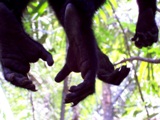|
|
 |
|
Travel insurance …is easy to buy but policies can be really difficult to understand. To safe you lots of money and distress please read this now. There are so many types of coverage and policies, and prices vary so drastically that it is difficult to make the right choice. Insurance companies know that often people don’t bother and just don’t read the policies. DON’T just get the cheapest policy. |
|
|
|
The kind of work you are planning to do often determines the type of health coverage you should get. To sort through the maze of available policies, you should first determine your needs. How long will you be volunteering and what will be your primary activities? There are many specialized policies available and also policies that include the injuries caused by the direct contact with wild animals. If you are planning to go hiking, mountaineering, or you will spend a lot of time in the jungle it might be a good idea to get comprehensive health coverage that includes Air Ambulance and Emergency Medical Evacuation. If you are planning a trip to a tropical country where many infectious diseases might be present, you might want to consider a type of coverage that includes doctor’s visits and medication in addition to medical emergencies. While if you are travelling to a country with few health threats, you might want to consider a policy that only covers medical emergencies such as hospitalization. I have travelled in tropical countries, and had to see a doctor for minor health problems. Sometimes your insurance does not cover doctor’s visit, you can go to a clinic that is part of the public health system, where treatment is usually very affordable. But if you prefer seeing a private doctor or a specialist while travelling, the cost for treatment might go up significantly, and it might therefore be better for you to choose a policy that includes doctor’s visits as well. |
|
A little checklist |
|
|
|
Don’t forget to take your insurance details with you wherever you go, & make photocopies and leave them with a friend or family back home. |
|||
|
Insurance Advice from the Association of British Insurers:
Doing Something Risky? If you are likely to be engaged in risky pursuits during a placement arranged by a gap year company, they should advise you to check that such activities are included in your insurance policy.
Be careful with your possessions – don’t leave your things where they’ll get stolen
Get proof of your loss
Remember the helpline
Useful Background Information
Copies of Documents Leave a copy of your passport, your insurance and any other important documents you may need to refer to with your parents, guardian or reliable friend at home. E-mail a copy to yourself and take an additional copy with you, which you keep separate from the original. In this way should you lose your documents abroad the situation can be quickly recovered. Insurance companies don’t want you to get a nasty surprise if you have to make a claim:
|
|
Source: |
 |
|||
|
useful Travel Insurance Links
|
|||
|
|
|
|
|
|
||||||||||||||

